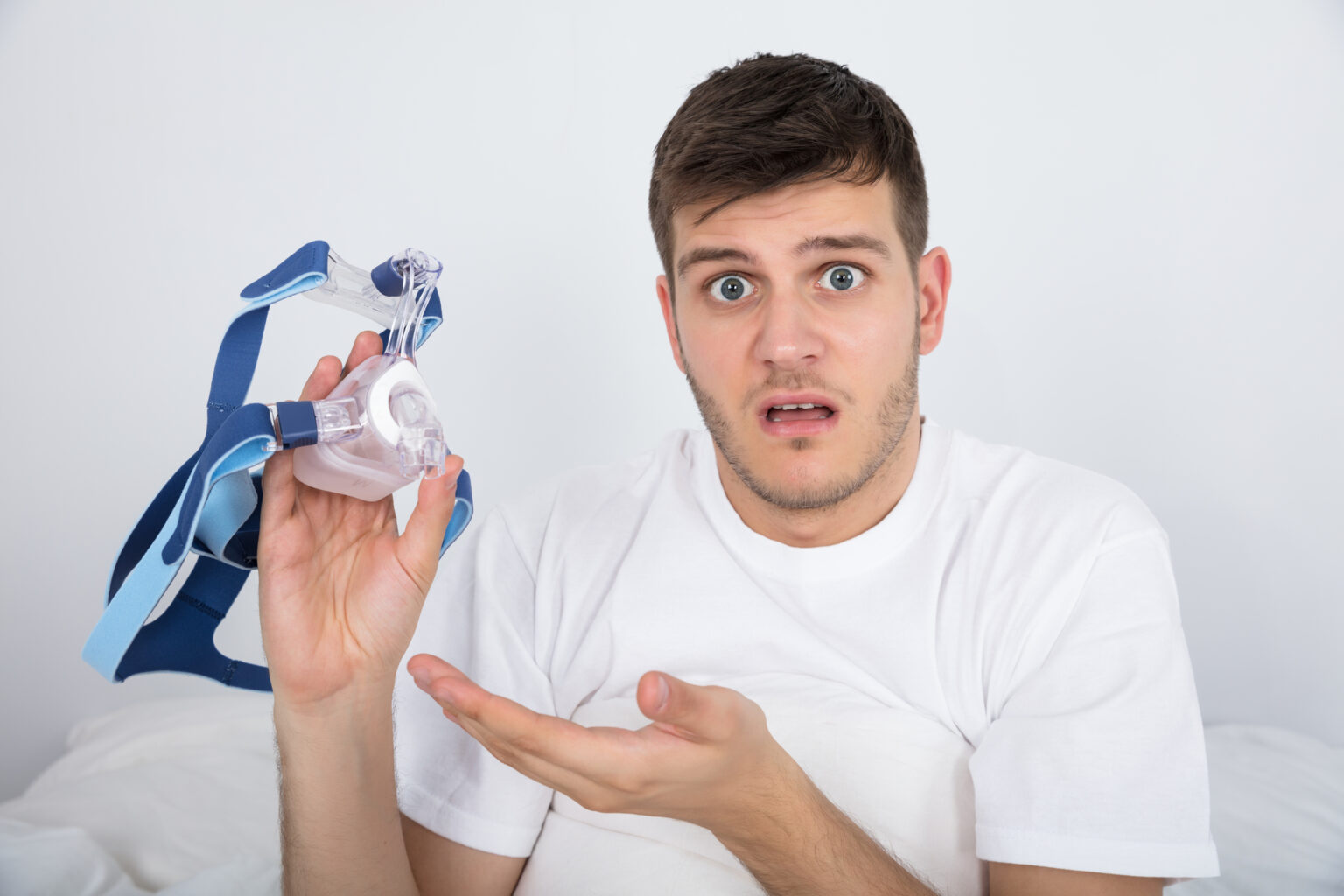
We meet many patients frustrated by obstructive sleep apnea (OSA), a common sleep condition affecting more than three million people a year, but even more who are searching for a CPAP alternative. Patients often begin Continuous Positive Airway Pressure therapy (CPAP), hoping it will cure their sleepless nights and allow them to rest naturally. But the reality is that many patients find the treatment more cumbersome than the condition itself and discontinue CPAP use after only a short time. If you use a CPAP, you’ve probably noticed some of the following adverse effects:
- Noise
- Restricted Movement
- Uncomfortable Headgear or Improper Fit
- Mask Leakage
- Claustrophobia
If you’ve stopped using your CPAP because of any of these reasons, then you’re not alone and could be a perfect candidate for a custom-fitted oral appliance called a mandibular advancement device (MAD). Read on to see how MAD stacks up against the top five reasons for patients to discontinue their CPAP use.
My CPAP Is Noisy
There’s nothing worse than trying to sleep when there’s a persistent, unyielding sound sucking all the peace and tranquility out of your bedroom. It’s even worse for your bed partner. We’re a long way from the CPAPs of the old days that sounded like a 747 taking off on a runway, but even the new “near-silent” models come with some disturbance. MADs function like a retainer—no motors, no whooshing sound, just peaceful, oxygen-rich sleep.
My CPAP Restricts My Sleep Movements
It’s no fun sleeping attached to a machine. In fact, many patients wake during the night because they have to turn or roll over and are all too conscious of their CPAP. A MAD has no sleep position restrictions. There’s no right or wrong angle to be in because the MAD can gently encourage your mandibular (jawbone) forward, diminishing the partial obstruction of the airways by the tongue and throat tissues.
My CPAP Is Uncomfortable or Doesn’t Fit
Sleeping with a mask and hoses on your head can take a lot of getting used to. The masks chafe, the hoses tangle, and often a person’s face simply doesn’t fit. MADs never have any of these issues because they are custom-made to fit your jaw size. If you can wear a retainer or a mouth guard similar to the kind used in sports, then a MAD is likely a good OSA treatment option for you.
My CPAP Mask Leaks
The problem with CPAP leaks is that you might not even realize you have one until you are already feeling the effects of a poor night’s sleep. In order for the CPAP to work, you have to maintain the right amount of air pressure to keep your airways open. A bad seal around the face or an unexpected leak in the equipment can not only make your OSA worse but can also cause a sore throat and irritated skin.
My CPAP Makes Me Claustrophobic
Many patients report feelings of being “buried” or “closed off” or “suffocated” while using their CPAP. The feeling of a mask over their face causes them too much anxiety to sleep while wearing it. This is especially true of patients who were already claustrophobic prior to their diagnosis. In these cases, a MAD is likely the best option to alleviate both the anxiety and the OSA.
Schedule A MAD Consultation
MAD oral appliances are superior to CPAPs in both treatment validity and for a patient’s quality of living. No condition should rule your life (or your sleep), nor should the treatment. Contact Dr. Mick’s office in Sacramento today at (916) 469-9178 to schedule your MAD consultation.


